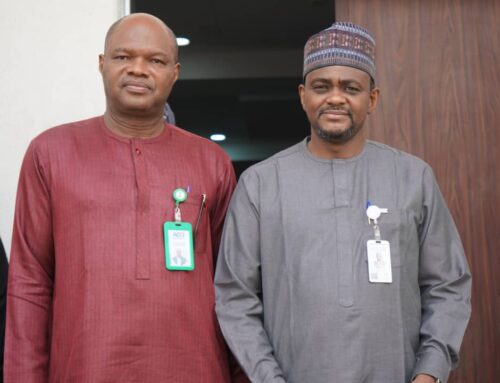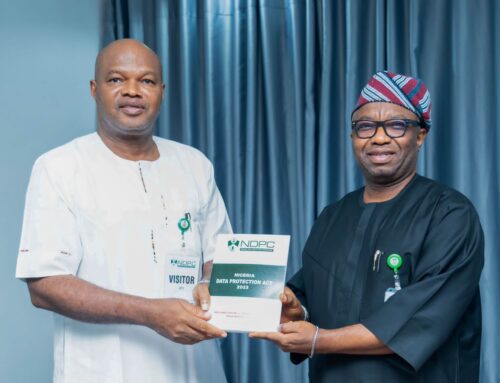ADR a Viable Alternative in Government Dispute
Being a presentation at a workshop on Government Contracts Dispute Resolution, held at Abuja Chamber of Commerce International Expo Center on the 7th May, 2019
By
Prof. Sylvester S. Shikyil, SAN
Faculty of Law
University of Jos.
Introduction
•Disputes are inevitable part of human interaction
•They may be domestic, international, civil, commercial or economic in nature
•The Adversary system of Dispute Resolution has been the cornerstone of our adjudicatory system which involves litigation.
•The system is viewed as contest between adverse parties with a judge serving as an unbiased umpire.
•However, the inadequacies of the process has become obvious; such as undue technicalities and complexities in litigation, high cost, delays in court proceedings, focus on who is right or wrong between the opposing parties.
•The situation tends to leave the parties a perpetual enemies.
•Some disputes are sensitive and confidential in nature and the disputants may prefer settlement in private.
•Further, there may be claims involving small sums that may not worth the cost of litigation.
Loading…
Alternative Dispute Resolution (ADR)
•ADR is an acronym for Alternative Dispute Resolution.
•The term Alternative Dispute Resolution (ADR) is used to described the methods used in resolving dispute as alternatives to the traditional dispute resolution mechanisms.
•It is a broad range of mechanisms and processes designed to supplement the traditional courts litigations by providing more effective and faster resolution process.
•It is a procedure for the settlement of disputes by means other than confrontational and relationship destroying litigation.
•Today, amicable settlement of disputes is preferred to litigation.
•Its processes are not only less formal but also less expensive and more expeditious than the court processes.
•By this method, a mere apology is enough to bring about settlement.
ADR METHODS
Negotiation
•This is a process in which two or more parties come together to discuss with a view to arriving at a consensus.
•The mechanism involves give and take of ideas and mulling of options to find a common ground.
•It involves reconciling the differences and establishing areas of agreement or compromise.
Facilitation
•This is a process where a neutral party enters discussion to help the disputants reach a consensus.
•The process is also known as “facilitated negotiation.”
•In this process, the facilitator does not look at the substance of the matter but he/she assists the parties to reach an agreement
Loading…
ADR Methods
Conciliation
•The Arbitration and Conciliation Act provides for settlement of disputes by conciliation.
•Sections 37-42 contain detailed provisions for conciliation.
•For instance, section 37 of Act, states that the parties to any agreement may seek amicable settlement in relation to the agreement by conciliation under the Act.
•Further, section 55 of the Act states that parties to an international commercial agreement may agree in writing that a dispute in relation to the agreement shall be settled by conciliation under the Conciliation Rules set out in the Third Schedule of the Act.
Mini-Trial
•The process assist the disputants to understand the issues in dispute.
•It is designed to facilitate the exchange of information between the parties to provide a suitable platform for a settlement.
•The mechanism is adopted after negotiation fails.
ADR Methods
Mediation-Arbitration
•This mechanism is a two-way dispute settlement system, comprising mediation and arbitration.
•In the process, the parties try to resolve their dispute through mediation but in the event that mediation fails to resolve some or all the issues, the remain unresolved issues may be submitted to binding arbitration.
•The process uses a neutral to guide the parties through the mediation phase and to preside through the arbitration.
•Consequently, the outcome of the process combines any agreement reached in mediation phase with the award in the arbitral phase.
Expert Determination
•A dispute may be referred to an expert for determination either by means of a term in an existing agreement or on an ad-hoc basis.
•The process involves a neutral third party who is an expert in the area in which the dispute arises.
•The mechanism is well established in the construction industry.
ADR Methods
Arbitration
•Arbitration is an agreement by the parties to a dispute that tribunals of their choice settle a dispute between them.
•For example, where two or more persons agree that a dispute between them shall be decided in a legally binding way, by one or more impartial persons of their choice, the agreement is called an “arbitration agreement” .
•Thus, arbitration is the fair resolution of a dispute between two or more parties by a person or persons other that a court of law.
•The objective of arbitration is therefore the fair and impartial resolution of a dispute by a neutral third party in a timely and cost efficient manner.
•The law regulating the process is the Arbitration and Conciliation Act.
•The Act provides for domestic and international commercial arbitration
The Value of ADR
Generally, ADR create s an environment that may be less formal and more relaxed, fosters better relationships between the disputants, narrows the issues in dispute, enhances the reputation of government generally and the agency, allows the consideration of a wider range of remedies, including both legal and non-legal remedies and resolves the dispute at a comparatively lower cost than legal proceedings.
Choice of Tribunal
•Parties to arbitration can choose a tribunal
•But, in the event of a failure to agree on the choice of a tribunal, there are provisions in the Arbitration and Conciliation Act for such appointment to be made an agency or a court.
Privacy
•ADR offers privacy in the determination of disputes.
The Value of ADR
•Thus, where the subject matter of the dispute is sensitive, such as an invention or technical know-how details, which any of the parties may not exposed to the public, or where disclosure of the facts to the public would be detrimental to a party, ADR usually offers the desired privacy.
Freedom of Choice of Law
•In arbitral proceedings, parties are free to choose the applicable law that will govern arbitration agreement, bearing in mind their mu8tual interest and conveniences.
•In Nigeria, the Arbitration and Conciliation Act is the Law governing commercial arbitration agreement.
•The Act provides for the form of arbitration agreement, composition of arbitral tribunal, jurisdiction of arbitral tribunal, conduct of arbitral proceedings, making of award and termination of proceedings.
Flexibility and Simplicity of Procedure
•ADR rules and procedures are made flexible, simple and adaptable to various types of disputes
The Value of ADR
Saving Cost
•Apart from simplicity and speedy and efficient determination of disputes, cost may be saved where the dispute is a technical one.
Quicker Decision
•ADR processes provide for quicker determination of dispute.
•For instance, some arbitration rules provides for timelines within which to conclude arbitral proceedings.
Preservation of Good Business and Personal Relation
•Where the parties to a dispute have good business or personal relations which they want to preserve, ADR mechanisms offer a better method of dispute settlement.
•This is because the mechanisms are more friendly, thereby leaving room for continuation of an unimpaired relationship.
•Further, ADR mechanisms can foster a better environment for ease of doing business
Loading…
To End
Matters to consider in Government Disputes
•The nature of the dispute – is the dispute about a matter that could be resolved by ADR or is a judicial decision needed?
•The sensitivity of the dispute.
•What issues to take to ADR; that is whether the whole dispute could be considered in an ADR process or only some issues.
•What settlement terms might be discussed in the ADR process.







Leave A Comment